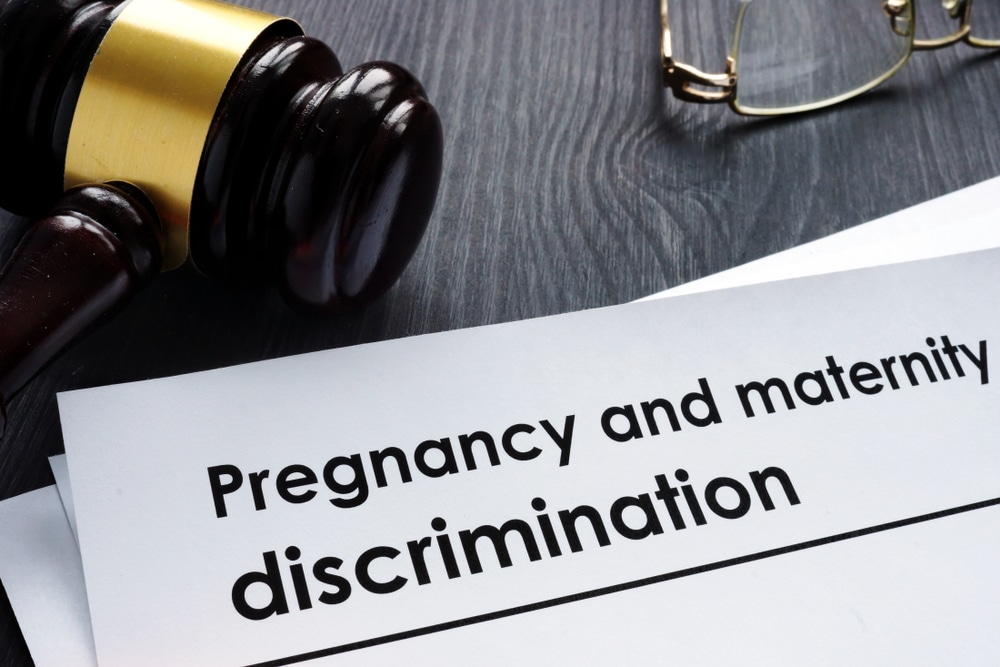
Pregnancy discrimination is by far one of the most distressing and heartbreaking workplace discrimination cases. Furthermore, sadly unfair treatment and experiences given to women, with disguised discriminatory attitudes, are increasingly becoming the norm.
What is pregnancy discrimination?
As per the UK Equality Act, 2010, it is an act of pregnancy discrimination if an employer discriminates against a woman, simply because she is pregnant or has just given birth.
The law also applies in a case of pregnancy related illness or claiming the right to maternity leave. To prove discrimination, a woman does not have to compare how a male colleague might have been treated, but only needs to prove that the discrimination has been due to her pregnancy.
All workers – employees, contractual staff, freelancers, as well as agency workers – are protected by the law from pregnancy and maternity discrimination from the beginning of their employment. Any employee dismissed on the grounds of pregnancy or maternity leave may file a claim as per the law.
Here are some examples of unfavourable treatment and discrimination which is often observed within workplaces:
- Redundancy selection on the basis of being pregnant
- Dismissal from job due to pregnancy
- Denying someone of training or promotion opportunities
- Reduction in salary or number of working hours
- Forcing someone to resign
- Not carrying out a risk assessment in a job where there are health and safety risks
The protected period
The protection against discrimination on the grounds of pregnancy or maternity lasts for a pre-set period that begins once you become pregnant. This period is called the protected period and lasts till you resume work after your maternity leave.
In cases where you do not have a maternity leave, since you are not an employee of a particular company, the protected period lasts till two weeks after you have given birth.
There are no eligibility criteria for you to make a claim. The automatic protection begins as soon as you are hired.
If you don’t have the right to maternity leave – for example, because you’re not an employee, the protected period ends two weeks after your child is born.
The right to return to your old role after the end of your maternity leave.
After the end of your maternity leave, you have the rights to return to your previous role at the job, with the same salary and terms and conditions, as you had before your maternity leave.
What are the extra rights in case of redundancy?
There are a few areas where an employer is allowed to positively discriminate. You can, for example, be offered an alternative vacancy, without an interview, considering your pregnancy. This right is far beyond the rights that your colleagues are entitled to.
However, this scenario is uncommon, as not many employees create new position as much as they should. In case an employee is not able to create a suitable alternative role, you are entitled to redundancy pay.
Compensation for Pregnancy Discrimination
There is no limit to the amount of compensation that a tribunal can offer you for pregnancy discrimination. Unlike unfair dismissal, the compensation usually includes a compensation for injury to feelings, as well as a compensation for any monetary losses suffered. It is not uncommon for an employee to receive thousands of pounds as compensation.
The UK law has set out three different bands of compensation for injury to feelings. The compensation varies as per the seriousness of the case.
The three bands, commonly known as “Vento” guidelines are:
- Top Band: this is for most serious cases and the compensation varies between £25,700 – £42,900. This can exceed in some exceptional cases.
- Middle Band: £8,600 – £25,700
- Lower Band: This band is meant for less serious cases and the compensation varies between £900 – £8,600
Time limits
There is a certain time frame for an employee to make a claim for pregnancy discrimination to the employment tribunal. The act of discrimination must be filed within three months or less.
Whilst most employment solicitors do have a discretion to file late claims, you must have a good reason as to why the claim was not made in time.
Therefore, if you think you are being discriminated due to pregnancy, it is suggested that you take professional advice as soon as you can.

